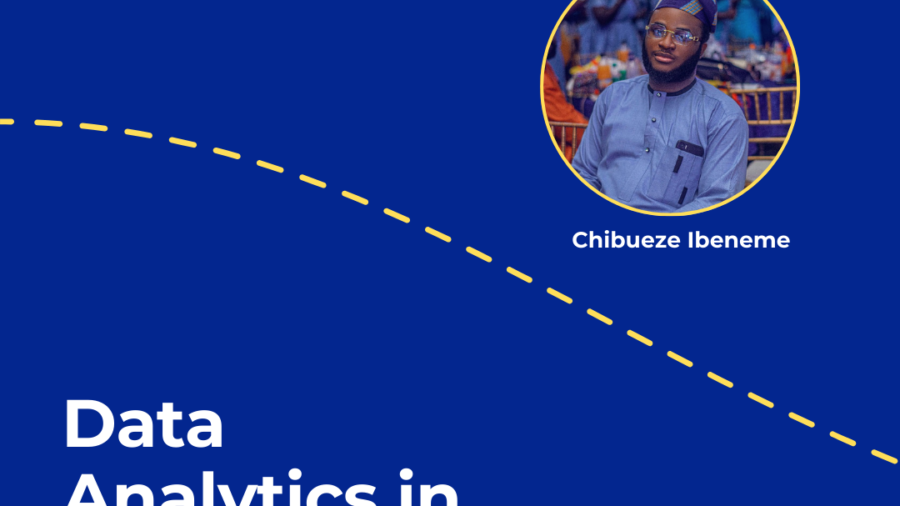In today’s fast-paced banking world, Data has emerged as a cornerstone in every decision-making process, particularly asset management.
We sat down with Caleb Ibeneme, a seasoned banking professional in Remedial Asset Management at Access Bank PLC, to explore how Data Analytics has transformed his daily operations and the wider banking industry.
Q: Can you tell us a little about yourself and how you got into Remedial Asset Management?
Caleb: I’m Caleb Ibeneme. I began my banking journey in 2016 with Diamond Bank before its merger with Access Bank PLC. I’ve held various roles, including Team Lead in Customer Care, and now I’m part of the Remedial Asset Management Group at the Head Office. It’s been an exciting transition that has opened my eyes to the importance of Data Analytics in the financial sector.
Q: What do you enjoy most about working in banking?
Caleb: The best part of working in banking is the opportunity to build genuine connections. The banking profession exposes you to different individuals across various sectors, allowing you to learn from and interact with people at all levels of society.
Q: How have you seen the banking profession evolve over the years?
Caleb: The most notable evolution has been in the adoption of technology. Banks are constantly evolving to meet the demands of the digital world, especially in areas like Online Banking, Fintech, and, of course, Data Analytics.
Q: When did you first notice the growing importance of Data Analytics in asset management?
Caleb: Right from my first day in the Remedial Asset Management Group, it was clear that Data Analytics was essential. Our daily tasks involve managing large volumes of Data, and without Data Analytics, we wouldn’t be able to handle our KPIs effectively. So, I quickly realized the need to improve my skills in this area.
Q: How do you currently use Data in your day-to-day tasks?
Caleb: A lot of my work involves reporting. I prepare reports for my line manager and the bank’s senior management, including performance reports and various analytics. Data helps streamline these reports, making them clearer and more actionable.
Q: Can you share an example where data analytics helped solve a specific work challenge?
Caleb: One challenge we face is managing classified loan portfolios, which involves handling huge amounts of data. Thanks to the knowledge I gained from Dataleum’s training in Data Analytics, I’ve been able to simplify and visualize this bulky Data, making it easier for others to understand and act upon.
Q: What kind of tools or software do you rely on for your analytics?
Caleb: I mainly use Microsoft Excel, Power BI, and SQL for Data Analytics. These tools have been invaluable for organizing, analyzing, and visualizing the data I work with daily.
Q: How do you see data analytics shaping the future of banking and asset management?
Caleb: Data Analytics is not just shaping the future—it’s already here. Every aspect of banking, from customer onboarding to asset management, is driven by data. With millions of customers and assets growing daily, the need for robust data analytics will only increase.

Dataleum’s CIBN Accreditation: Paving the Way for Finance and Banking Professionals
As Data continues to drive critical decision-making processes in the banking industry, institutions like Dataleum are playing a pivotal role in equipping professionals with the skills they need. We are proud to announce that Dataleum has recently been accredited by the Chartered Institute of Bankers of Nigeria (CIBN) as a certified training provider.
This prestigious accreditation allows us to offer specialized training programs tailored for professionals in the finance and banking sectors. Our Data Analytics courses, for instance, provide the foundational skills necessary to excel in roles like Caleb’s, where the ability to interpret and visualize large sets of data is crucial.
With the support of the CIBN, we are positioned to bridge the skills gap in the industry, ensuring that more professionals are well-equipped to meet the demands of a data-driven world.

